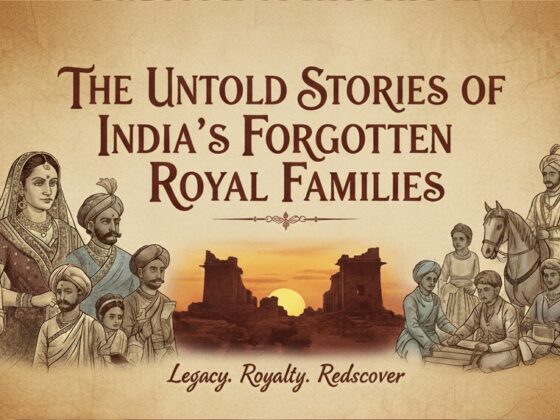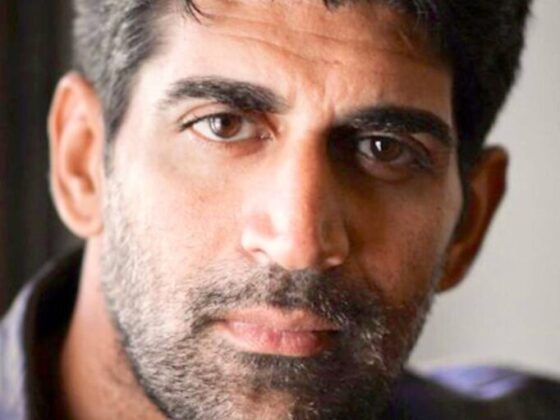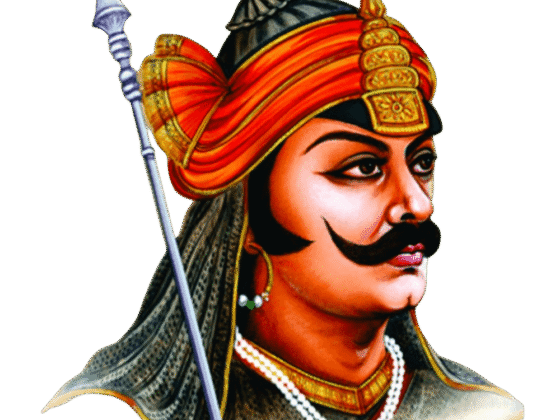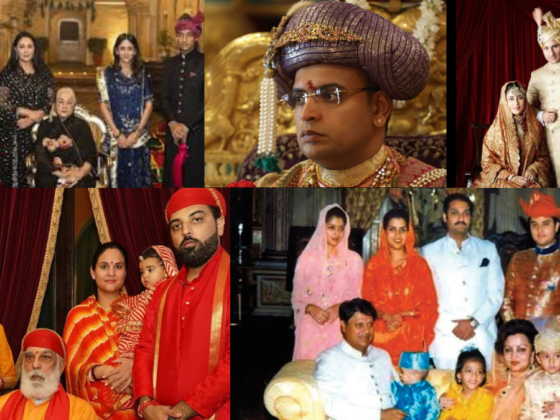The Legacy of Rajput Valor: A Conversation with Raja Manvendra Singh Ji
India’s history is shaped by countless communities, each contributing uniquely to its cultural and historical landscape. Rajasthan, a land of legendary warriors, echoes tales of valor, pride, and resilience. The Rajputs, known for their bravery and unwavering honor, have played a crucial role in shaping medieval India’s political and social fabric. Their name, derived from the Sanskrit term ‘Rajaputra’ (son of the monarch), reflects their noble lineage and warrior spirit.
A Glimpse into Ancestral Heritage
Raja Manvendra Singh Ji, a proud descendant of Rajasthan’s Rajput clan, shared his family’s rich heritage in an exclusive interview. He traced his lineage to the Vaishampayana gotra, associated with Sage Vaishampayana. His ancestry belongs to the legendary Solar Dynasty (Suryavansha), linking back to Lord Rama, the seventh incarnation of Lord Vishnu.
His great-grandfather, Raja Balwant Singh Ji, founded the Akhil Bharatiya Kshatriya Mahasabha in 1897 to uplift society. This organization, now active in 24 states, provides financial aid and support irrespective of caste. His grandfather, the late Maharaja Pradyuman Singh Ji, served as the Director of the Horticulture Department in Nagpur, MP. His father, Maharaja Lakshman Singh Ji, was a notable political figure and the Speaker of the Rajasthan Congress. Manvendra Singh Ji, the second of four sons, grew up in Mathura and later earned a doctorate in social work from the Institute of Entrepreneurship and Management, recognized by the United States Council for Training and Development.
A Political Journey Rooted in Service
Manvendra Singh Ji’s early exposure to politics and social service fueled his passion for development. He became a member of the Lok Sabha Committee of the Mathura Assembly for three years. At just 35, he contested an election against Chaudhary Charan Singh Ji’s wife and won by a significant margin. His political influence grew, and he built strong ties with Rajiv Gandhi. After Gandhi’s assassination, he sought an electoral ticket from Indira Gandhi. In 2004, he decisively defeated Gayatri Devi in another election.
Throughout his parliamentary career, he prioritized employment opportunities for youth, securing jobs in the railways, police, and other sectors. He also wrote to the Prime Minister, advocating the use of PM funds to cover medical expenses and essential services for underprivileged communities.
A Champion of Social Harmony
Manvendra Singh Ji’s commitment to social welfare extends beyond politics. He strongly opposes caste and religious discrimination, welcoming people from all backgrounds into his home with warmth and hospitality. When discussing India’s religious and caste conflicts, he emphasized the need for unity, warning that unnecessary disputes threaten national harmony. He believes fostering peace and protecting lives should be a national priority.
Preserving Rajput Heritage
Rajput history is rich with tales of legendary warriors such as Maharana Pratap, Prithviraj Chauhan, and Rana Sanga. Manvendra Singh Ji remains dedicated to preserving and honoring their legacy. To raise awareness about Rajput history, he advocates installing statues of great warriors across India as a tribute to their bravery. Additionally, he has urged the Indian government to revise textbooks to include chapters on Rajput rulers, instilling national pride among young generations.
A Lasting Legacy
As our conversation concluded, Manvendra Singh Ji’s passion for Rajput culture and values was evident. His dedication to social service, political reform, and heritage preservation ensures that the legacy of Rajput valor endures. Through his relentless efforts, he continues to bridge Rajasthan’s glorious past with the present, inspiring future generations to uphold the values of courage, honor, and unity.
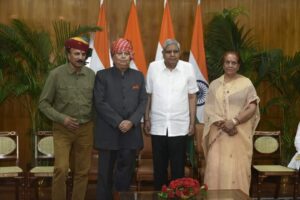
A Political Journey Rooted in Service
Manvendra Singh Ji’s early exposure to politics and social service fueled his passion for development. He became a member of the Lok Sabha Committee of the Mathura Assembly for three years. At just 35, he contested an election against Chaudhary Charan Singh Ji’s wife and won by a significant margin. His political influence grew, and he built strong ties with Rajiv Gandhi. After Gandhi’s assassination, he sought an electoral ticket from Indira Gandhi. In 2004, he decisively defeated Gayatri Devi in another election.
Throughout his parliamentary career, he prioritized employment opportunities for youth, securing jobs in the railways, police, and other sectors. He also wrote to the Prime Minister, advocating the use of PM funds to cover medical expenses and essential services for underprivileged communities.
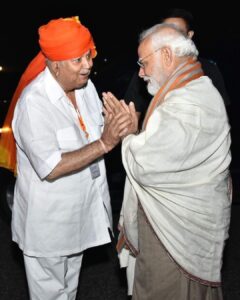
A Political Journey Rooted in Service
Manvendra Singh Ji’s early exposure to politics and social service fueled his passion for development. He became a member of the Lok Sabha Committee of the Mathura Assembly for three years. At just 35, he contested an election against Chaudhary Charan Singh Ji’s wife and won by a significant margin. His political influence grew, and he built strong ties with Rajiv Gandhi. After Gandhi’s assassination, he sought an electoral ticket from Indira Gandhi. In 2004, he decisively defeated Gayatri Devi in another election.
Throughout Raja Manvendra Singh Ji parliamentary career, he prioritized employment opportunities for youth, securing jobs in the railways, police, and other sectors. He also wrote to the Prime Minister, advocating the use of PM funds to cover medical expenses and essential services for underprivileged communities.
A Champion of Social Harmony
Manvendra Singh Ji’s commitment to social welfare extends beyond politics. He strongly opposes caste and religious discrimination, welcoming people from all backgrounds into his home with warmth and hospitality. When discussing India’s religious and caste conflicts, he emphasized the need for unity, warning that unnecessary disputes threaten national harmony. He believes fostering peace and protecting lives should be a national priority.
Preserving Rajput Heritage
Rajput history is rich with tales of legendary warriors such as Maharana Pratap, Prithviraj Chauhan, and Rana Sanga. Manvendra Singh Ji remains dedicated to preserving and honoring their legacy. To raise awareness about Rajput history, he advocates installing statues of great warriors across India as a tribute to their bravery. Additionally, he has urged the Indian government to revise textbooks to include chapters on Rajput rulers, instilling national pride among young generations.
A Lasting Legacy
As our conversation concluded, Manvendra Singh Ji’s passion for Rajput culture and values was evident. His dedication to social service, political reform, and heritage preservation ensures that the legacy of Rajput valor endures. Through his relentless efforts, he continues to bridge Rajasthan’s glorious past with the present, inspiring future generations to uphold the values of courage, honor, and unity.
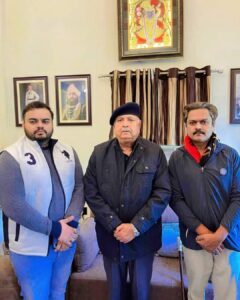
At the end of the interview, Manvendra Singh Ji‘s passion for Rajput tradition was evident in every word. The Rajput dynasty, with its stories of courage and honour, lives on through the legacy of men like him. It is a timeless legacy that connects the glorious chapters of Rajput history with the present day.
A Lasting Legacy
As our conversation concluded, Manvendra Singh Ji’s passion for Rajput culture and values was evident. His dedication to social service, political reform, and heritage preservation ensures that the legacy of Rajput valor endures. Through his relentless efforts, he continues to bridge Rajasthan’s glorious past with the present, inspiring future generations to uphold the values of courage, honor, and unity.


